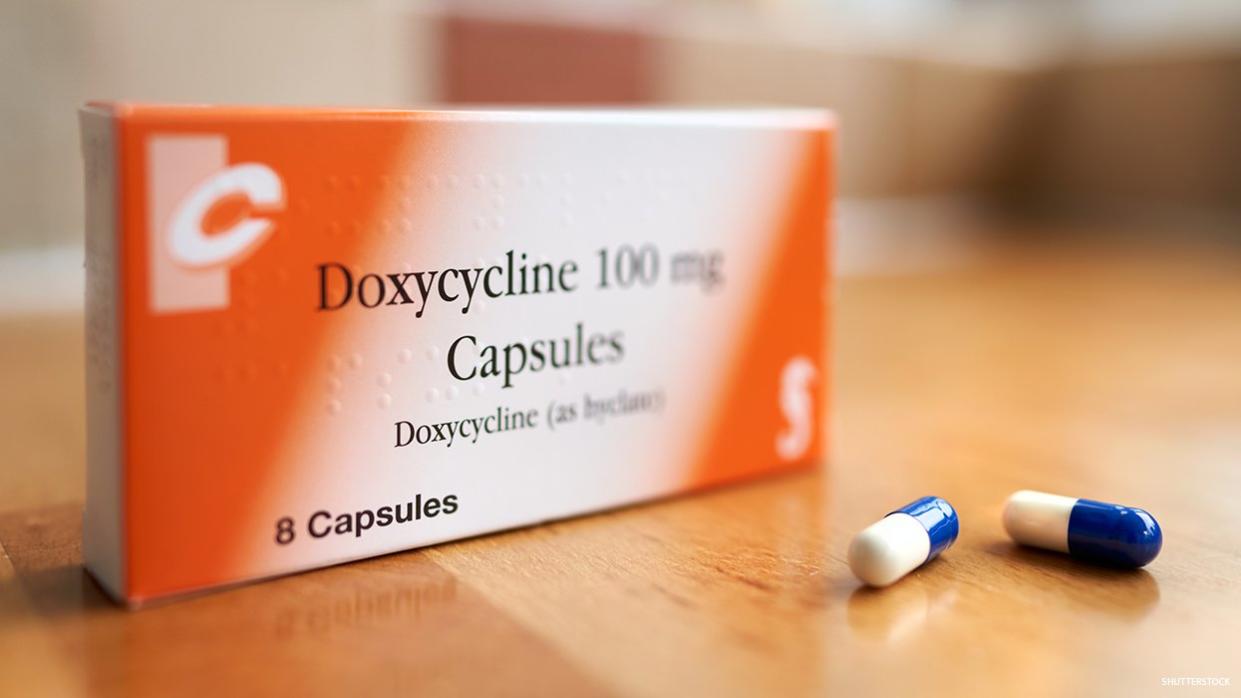CDC Proposes Gay Men and Trans Women Take ‘Morning After’ Pill for STI Prevention

The Centers for Disease Control and Prevention (CDC) is proposing the use of a “morning after” antibiotic pill to prevent some sexually transmitted diseases within at-risk groups in the LGBTQ+ community.
The CDC is asking for comments on its proposed change in guidelines to recommend doxycycline post-exposure prophylaxis (Doxy PEP) to reduce cases of chlamydia, gonorrhea, and syphilis infections among at-risk groups. The change recommends gay and bisexual men and transgender women take a single dose of Doxy PEP shortly after sexual activity. The CDC says the use of Doxy PEP “represents a new approach to addressing STI prevention in populations at increased risk for these infections.”
The 45-day comment period started on Monday.
“STIs are pervasive and increasing rapidly in the U.S., and Doxy PEP has demonstrated substantial benefit in reducing new chlamydia, gonorrhea, and syphilis infections,” Leandro Mena, director of the Division of STD Prevention and the National Center for HIV, Viral Hepatitis, STD and TB Prevention at the CDC, said in a statement announcing the proposed guidelines. “Doxy PEP can benefit the health of some gay, bisexual, and other men who have sex with men, and transgender women who have increased chances of getting an STI.”
Connie Celum, the director of the International Clinical Research Center and one of the co-principal investigators of Doxy PEP, told STAT News the proposed changes represent a radical new approach to the prevention of STIs within at-risk communities.
“One of the things that I think sometimes gets lost in the discussion is, this is not an intervention for everyone, but one for people who are particularly high risk,” Celum said.
The CDC reported surprising results in some of their studies, showing Doxy PEP was highly effective in preventing STIs. One study used 501 gay and bisexual men and trans women as participants. The participants all had to be sexually active with at least one STI in the past 12 months. The participants were divided into two basic groups, with one group using Doxy PEP within 72 hours after unprotected sexual activity and the other group not using Doxy PEP. The median number of sexual partners for each participant using Doxy PEP was nine during one month of the study. The results showed an STI rate of 30 percent amongst those not using Doxy PEP compared to 10 percent for those using the antibiotic.
Despite the promise of those results, Mena said the process is not yet complete.
“Important questions remain about the effectiveness of this approach for other populations, as well as potential long-term development of antimicrobial resistance and impacts on the microbiome,” Mena said. “Given potential unknowns, CDC is calling for long-term monitoring and evaluation as more data become available.”

